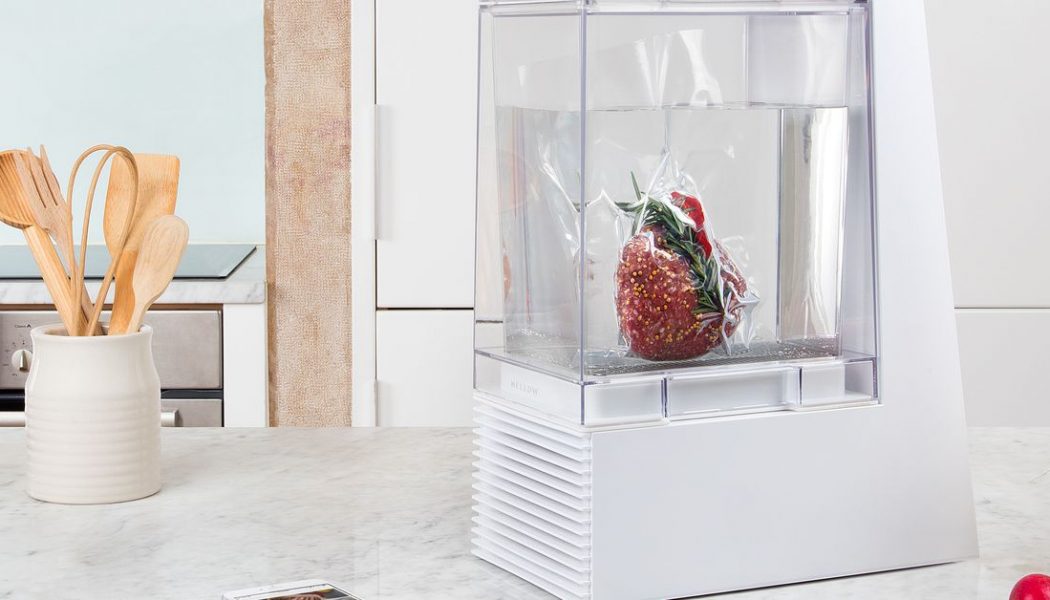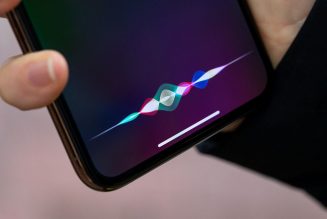
In 2014, Mellow, Inc. released the Mellow for $399, billing it as “the world’s first smart sous-vide machine” — one that promised to automatically weigh and then heat and cool your specified foods for a perfect slow-cooked result, even adjusting that timing mid-cook to match your changing schedule. But now, the company is taking away those smarts from existing owners unless they pay $6 a month, or $48 for an annual subscription.
As SlashGear’s Chris Davies reports, Mellow owners were surprised to find they couldn’t cook a meal this week until they updated the app, only to discover that the app update barred them from using most of the cooker’s previously free “smart” features without paying for the new “Premium Subscription.”
Not everything is locked behind a paywall: Mellow’s manual mode still lets you set the cooker’s temperature from your phone remotely, but you can buy comparatively dumb sous-vide gadgets — even well-reviewed ones like the Anova Nano — for $129. The Mellow originally cost $399 brand-new, and though it’s currently on sale for $149, it’s likely most buyers paid the typical asking price of $200-$300 to get one.
Late Monday evening, Mellow released a statement on Instagram explaining the justifications for its “premium” plan, citing financial hardships in the wake of the coronavirus pandemic and claiming that many potential investors and acquirers interested in the company walked away, and arguing that the servers responsible for the cooker’s smart features cost too much to operate. The Instagram post has since disappeared, but SlashGear saved a copy of its text first:
Mellow was launched in 2014 by 2 founders out of Lisbon, Portugal. Unfortunately these founders did not think of the future when they built Mellow V1. Mellow was built with WiFi only and uses outside servers to run its systems and software. Their [sic] is no turning back. These servers and systems cost a lot of money each month and the bills are based on the usage of all the Mellows. Not only did the founders lose over $3 million dollars of their investors money but they also had no plan on ow the [sic] would pay for the future bills after they sold their Mellows. In 2018 Mellow was going to shut down. If the company shut down all of the Mellows that were in people’s homes would be useless. To save the company one of the early investors stepped in to try and do everything he could.
After 2 years the company was again on the verge of shutting down. Although lots of progress was made, once COVID hit any potential investors or acquirers that the company was talking to walked away. The new owners dug deep to try and figure out a way to save the company. Passionate about the product and not wanting to see it all gone the new team came up with the only solution. That solution was to start charging a monthly subscription to use the app. At first we were going to charge for all features but after some back and forth it was decided to keep the manual mode free and charge for the other features. And that is what was done.
We know some of you are really mad and we understand. We know some of you understand and we are very appreciative. We hope in time you will forgive us and support us during these trying times. Thanks [sic] you for listening.
It’s true that other smart home gadget companies have abandoned their products altogether instead of keeping them running. Logitech’s Alexa-powered Harmony Express remote is just one of the most recent examples, though in that case Logitech offered exchanges and full refunds.
Following the update, some users have left negative reviews of the app on the App Store and Google Play to express disdain for the new paid services; one user wrote the new premium plan was a “bait and switch.” Some Kickstarter backers that chipped in to crowdfund the second generation of Mellow’s sous-vide gadget demanded refunds following the announcement. The Mellow team says pandemic travel bans and restrictions are forcing it to delay the release of that second-gen product by six months as well.
Mellow is not the only smart home tech company to try asking for more money for things that were originally supposed to be free. In May, Wink announced that it would require customers to pay a $5 per month fee to access its smart home features that were previously free, again citing the pandemic’s financial strains. Earlier this month, smart home company Wyze announced a pay-what-you-want model to access its AI-powered person detection feature.
You can see some of Mellow’s early promises via the Internet Archive here.










